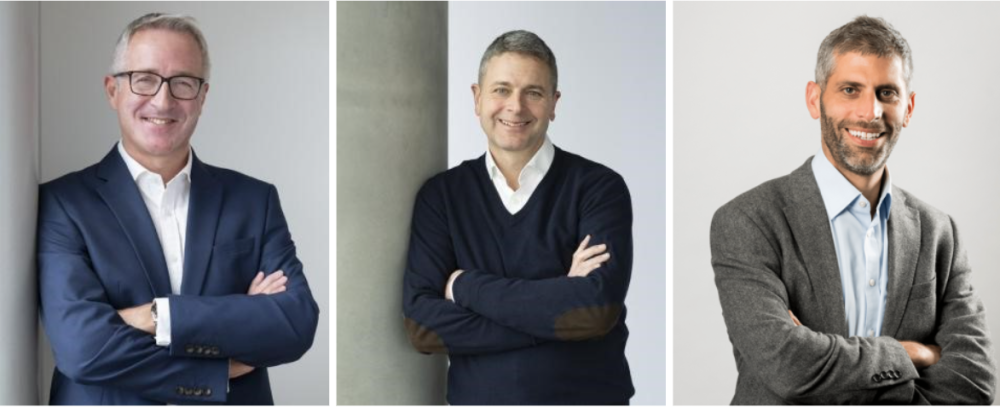JPM 2025: key takeaways from the largest healthcare investment conference
Our colleagues were in San Francisco for this year’s J.P. Morgan Healthcare Conference (JPM Week), an event that gathers the world’s biopharma industry to find opportunities for dealmaking, advance cutting-edge science, and accelerate new medicines for patients.
Here, we summarise key conference insights from Tony Hickson, Chief Business Officer, Phil Masterson, Associate Director of Ventures, and Jonathan Tobin, Investor-in-Residence.
- 10 February 2025


What's hot in M&As?
This year’s JPM Week cut a more upbeat feeling around mergers and acquisitions (M&As) than last year, albeit with an air of caution due to geopolitical and US policy shifts.
Off the back of recent Alzheimer’s drug approvals and observed GLP-1 neurological effects, there is a renewed interest in the central nervous system (CNS) space. The first day saw the largest deal announced – Johnson & Johnson’s $14.6bn acquisition of Intra-Cellular Therapies, a pharmaceutical company focused on the development and commercialisation of therapeutics for CNS disorders.
Despite early wobbles in its first generation, it was great to see the buzz around cell and gene therapies, confirming that they are a mainstay. New manufacturing technologies stood out, improving scalability, reducing costs, and speeding up therapy delivery.
Oncology still stands strong as one of the biggest areas of dealmaking. Notably, GSK announced an up to $1.15bn acquisition of IDRx, Inc., adding a highly selective KIT tyrosine kinase inhibitor designed to treat gastrointestinal stromal tumours (GIST) to its portfolio. Meanwhile, Eli Lilly is set to acquire Scorpion Therapeutics’ PI3Kα inhibitor program STX-478, targeting breast cancer and other advanced solid tumours, for up to $2.5bn.
In spite of these multi-billion-dollar deals, the bar for acquisitions is getting higher. Large pharma wants to see compelling clinical data that demonstrates some level of efficacy – preclinical and safety data alone are not enough unless the start-up boasts a significantly differentiated technology or platform.
The industry is returning to its core principles, where strong science and reliable data take precedence, and prioritising sustainable innovation over rapid expansion.
AI is here to stay
There is a continued interest in artificial intelligence (AI) and data across drug discovery and repurposing, clinical decision making, and healthcare, with NVIDIA and data management companies grabbing the headlines at JPM Week. NVIDIA announced major new partnerships with healthcare and life science leaders (including IQVIA, Illumina, Mayo Clinic) to advance genomics, drug discovery and healthcare.
However, with $1tn wiped off the US stock market overnight (including $500bn from Nvidia) following the arrival of China’s answer to ChatGPT, DeepSeek, 2025 will likely see greater attention and importance given to updates from China.
Nevertheless, there is clearly huge value in combining massive troves of untapped healthcare data with AI-powered models and technology. In response to notable scepticism about the overall return on investment that AI will have, experts were quick to point out that outcomes will be based on the quality of data used in the various models. Could 2025 be the year that we see AI deliver breakthrough solutions to global healthcare challenges?
A rise in Chinese innovation
JPM Week showcased an explosion of fast-follow Chinese assets being acquired or in-licensed by US pharma. Last year, pharma companies sourced nearly one third of their in-licensed molecules from China, up from around 10% to 12% between 2020 and 2022. Of these, there was a notable uptick in immunology and cardiometabolic assets, including obesity drugs. This shift signifies a growing recognition of the high-quality science emerging from China.
How is the VC landscape looking?
Potential interest rate rises may pose challenges for venture capital (VC) funds raising new capital, as investors are likely to favour those with top-quartile track records. Notably, there were no VC rounds exceeding $100m announced during the JPM period – perhaps a telling sign of a more cautious funding environment.
Trump 2.0?
Amid speculation about potential changes to the Inflation Reduction Act under the new Trump administration, the future of US health policy remains uncertain, and discussions at JPM Week brought more questions than answers. There is particular interest around the outcome of the controversial “pill penalty”, which reduces the exclusivity period for small molecule drugs to nine years, compared to 13 years for biologics. To add to that, uncertainty looms over how regulatory policies for new drug approvals may evolve under the new leadership. It is now a case of waiting to see how it plays out.
